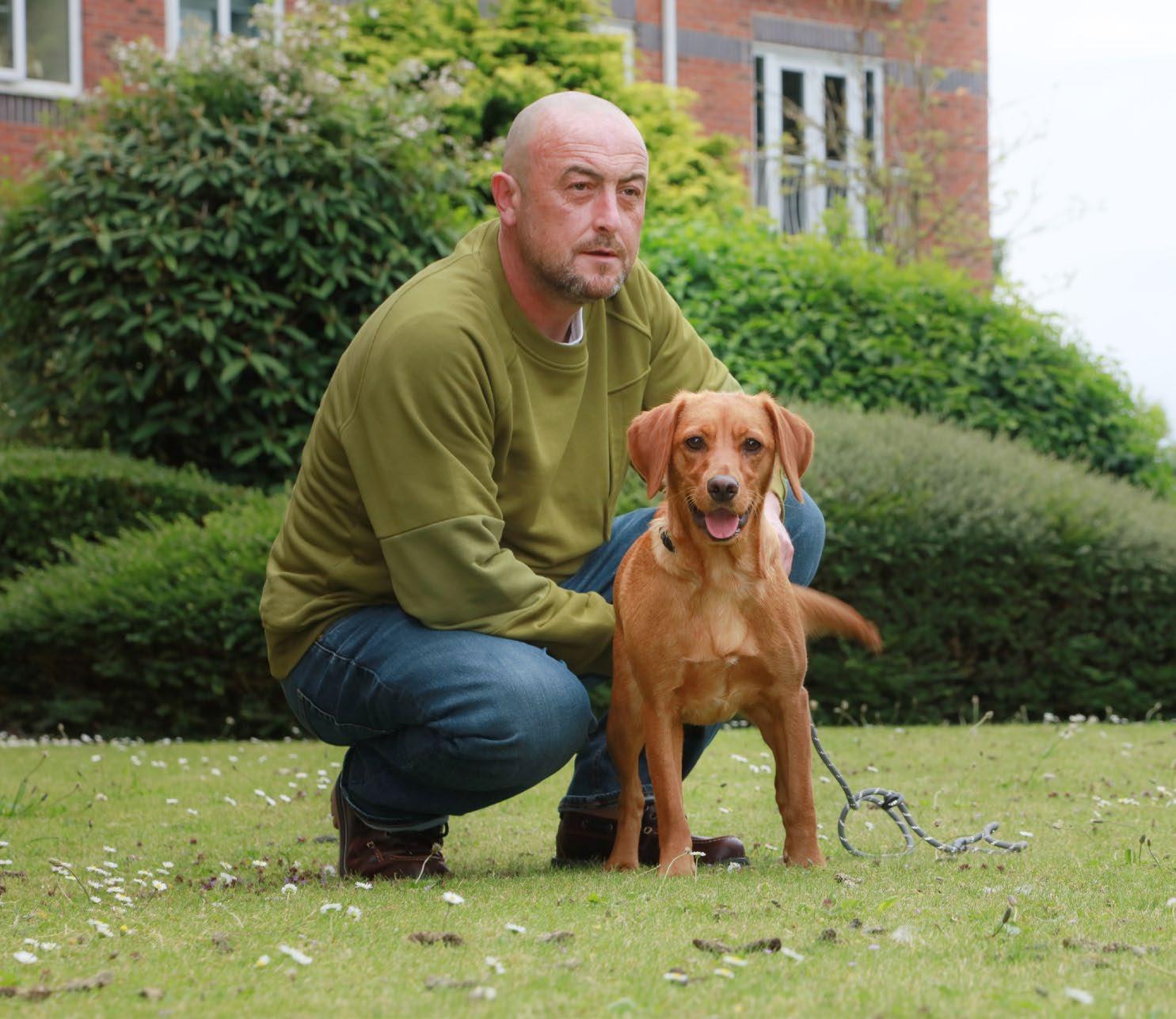
3 minute read
Living with OCD
Acts of kindness
Even as a small boy, James noticed he had some unusual habits. “I’d count numbers of steps in a staircase. Walking on grass was okay but lines and cracks in a pavement needed to add up to ten.”
Growing up with OCD, James developed habits to help him cope which included scratching and picking at his skin. “By concentrating on the pain, it took my mind off how I was feeling.”
He continued to struggle with intrusive thoughts and the condition eventually heightened to the point that he was drinking heavily and thought he didn’t want to go on living.
To James’ astonishment, a mindfulness course has turned his life around.
It taught me not to panic when a distressing thought comes into my head.
“I didn’t think it would work for me because I struggle to stay still and my mind wanders. But I use it to focus on daily tasks.”
Cooking has been a big part of his mindfulness process - choosing the ingredients, creating a fresh meal and sharing food with his neighbours.
“I haven’t had a takeaway in months and making food for others - an act of kindness boosts my feel good hormones. Even washing the dishes has taught me to focus on the present and enjoy everything I do.
“Mindfulness has brought me back from the brink of suicide. I will always have the intrusive thoughts, but I know now just to let them go.”
Pathway To Recovery
Catherine has lived with OCD since she was 12 but she was 35 before she was able to confide in anyone. Her OCD encompasses all aspects of her life and she works part time because the condition is so mentally and physically exhausting for her.
If she doesn’t do things in a certain order, she believes harm could come to someone she loves.
“From when I get up in the morning, to when I go to bed at night, I carry out a lot of ritualistic or safety seeking behaviours, because it’s the only way I can feel safe.”
The rituals only bring temporary relief and Catherine has tried to address her OCD over the years through therapy. However, simple activities like visiting a supermarket or going to unfamiliar places remain extremely difficult for her. Her advice to anyone who recognises these symptoms in themselves or someone they love is to seek help through your GP or an OCD charity.
“With treatment, whether it be medication, CBT or a combination of both, most people will get at least a partial recovery. Get the treatment early, get onto a recovery pathway and get living a fulfilling life again.”
Catherine is a volunteer for the OCD charity www.ocduk.org. Read other people’s stories on their website.

